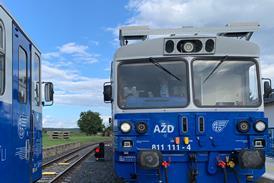Close menu
- Home
-
News
- Back to parent navigation item
- News
- Traction and rolling stock
- Passenger
- High speed
- Freight
- Infrastructure
- Policy
- Technology
- Ticketing
- Business
- Research, training and skills
- Accessibility and inclusion
- People
- Urban rail news
- Suburban and commuter rail
- Metro
- Light rail and tram
- Monorail and peoplemover
- Regions
- InnoTrans
- In depth
- Events
- Data
- Maps
- Tenders & Jobs
- Sponsored content
- Insights
Planning Freight Railways
By Railway Gazette International and Andrew Grantham2004-02-01T11:00:00
Edited by Nigel G Harris and Felix Schmidt
Already have an account? LOG IN
To continue…
You’ve reached your limit of content for the month














